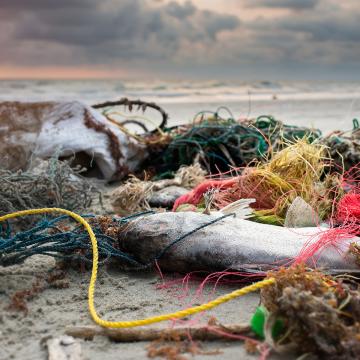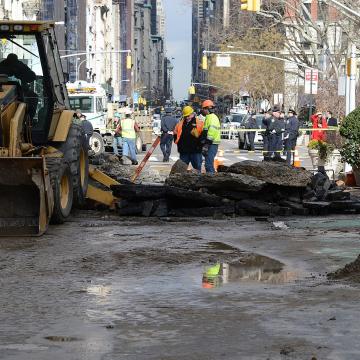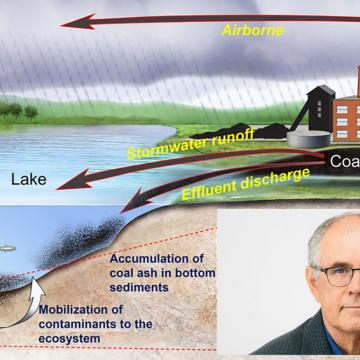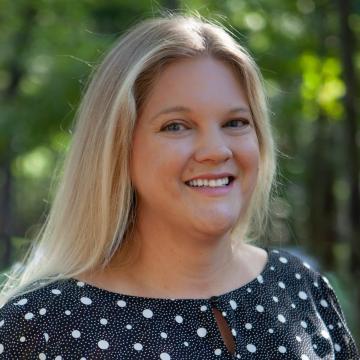-
NewsBrianna Elliott, a PhD student in the Marine Science and Conservation program, recently shared insights into her research focus, the Read Lab, the impacts of her research and the most rewarding part of her research experience.
-
NewsPeople in areas where drinking water is contaminated with PFAS often want to know their PFAS blood levels but have trouble gaining access to reliable testing, which traditionally involves having their blood drawn by a medical professional.
-
NewsThe Duke Plastic Pollution Working Group is working to find solutions, through innovative technologies, practices and policies that can help curb plastic waste, reduce its harmful impacts, and make Earth a greener, healthier home for us all.
-
NewsMalaria control programs in Amazonian Peru helped reduce the incidence of the deadly parasitic disease by 78%. That is, until the programs ceased to operate.
-
NewsNew GIS-enabled analysis by a Duke University researcher maps what the far-reaching impacts to international trade and shipping could be if any of the world’s 11 busiest marine chokepoints, or shipping straits, are closed due to politics, piracy, vessel accidents, or other causes. Knowing in advance what to expect will help businesses and governments better navigate unexpected closures and reduce disruptions to international trade and global supply chains.
-
News72% of Earth’s largest companies have pledged to reduce their plastic waste. A new study surveys what they’re doing (or not) to fulfill those promises.
-
NewsA new analysis by researchers from 15 institutions evaluates barriers that have hindered the implementation of early warning systems intended to help local health officials predict and proactively respond to outbreaks of climate-related diseases in the Tropics. The researchers use knowledge and tools from the field of implementation science to propose a four-step, science-based framework for overcoming these barriers and enhancing the success of the early warning systems.
-
NewsThe five-year grant renewal will support five new or newly refocused research projects investigating the long-term health impacts of early-life exposures to polycyclic aromatic hydrocarbons (PAHs) and toxic metals such as lead, which are two of the most common classes of hazardous contaminants found today in areas with a legacy of industrial pollution.
-
NewsKnowing voters have seen news reports about problems caused by failing or outdated public infrastructures in their district makes local officials who face competitive re-elections more inclined to support new spending to repair or replace the aging structures, a survey of city and county officials in 49 states shows. Findings from the survey by Duke University and the Environmental Policy Innovation Center underscore the continued importance of local media even as newsrooms shrink nationwide.
-
NewsDuke experts discuss how the legislation spurred environmental progress in America
-
NewsToxins in lake bottom may become available to food web
-
NewsResearchers at Duke University have received a $248,000 grant from the U.S. Environmental Protection Agency to study PFAS exposure risks in the home environment.
-
NewsThe global supply chain impacts of Russia’s invasion of Ukraine have exposed vulnerabilities in U.S. energy security and undercut the myth that the United States — or any major manufacturing economy — is truly energy independent, an analysis by researchers at the energy nonprofit RMI and Duke University finds
-
NewsFirefighters have a 9 percent higher risk of being diagnosed with cancer and a 14 percent higher risk of dying from the disease than the general adult U.S. population, according to studies by the National Institute of Occupational Safety and Health and other agencies.
-
NewsKate Hoffman, an assistant research professor at Duke University’s Nicholas School of the Environment, has received a $3.4 million grant from the National Institutes of Health to study the impact of early-life exposures to semi-volatile organic compounds (SVOCs) on neonatal and early childhood immune function.












